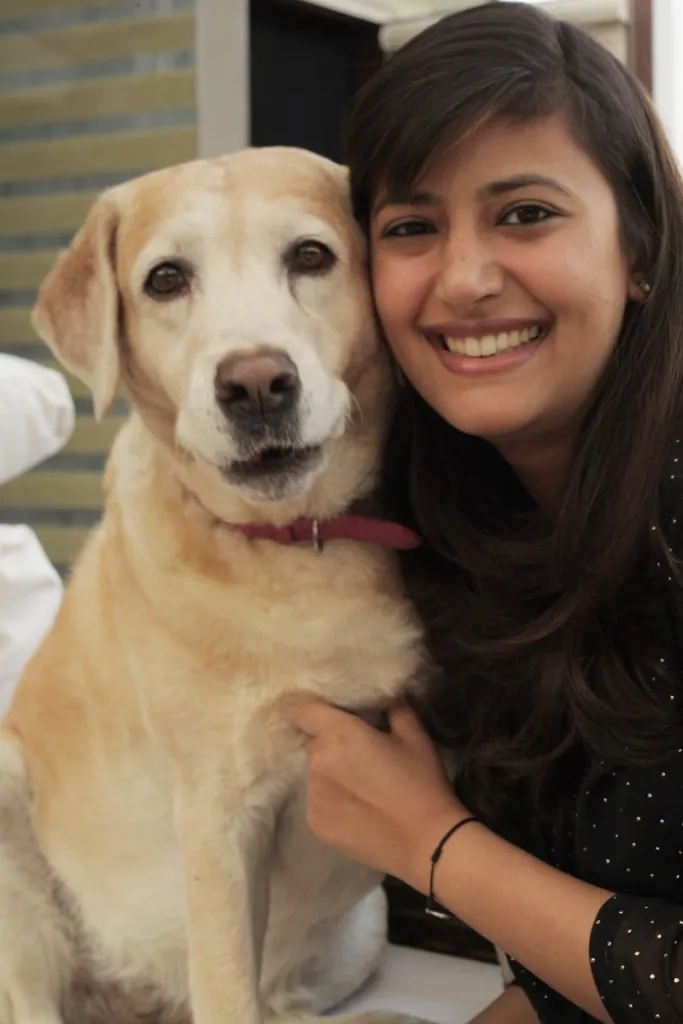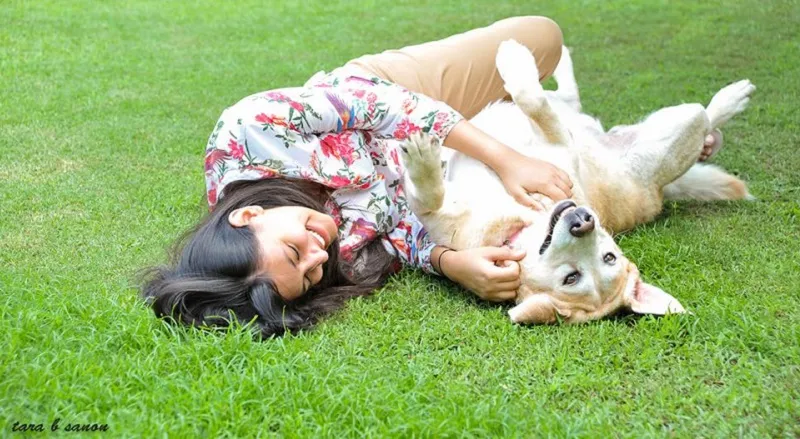How this LSE alumna set up a pet product company and bootstrapped it for eight years
The perfect collar, the right bed, accessories, toys, and grooming products. Most people fret about getting only the best of everything for their beloved four-legged friends. However, in India, the biggest problem is customisation based on the needs of different pets. This pain-point was what urged Rashi Narang to start Heads Up For Tails.
The startup makes a line of upscale, utility-based products for pets with a strong focus on design. This includes products such as dog beds, apparel, collars, accessories, toys, grooming products, treats, as well as a line for pet lovers. There is also a strong focus on customisation and personalisation based on what the customer is looking for.
In 2007, Rashi had just moved to India from New York; her companion and source of solace was Sara, a Labrador, whom she describes as a fur ball of naughtiness and love.
“Wanting to get the best for her, I tried procuring the most stylish and cute pet products for my little furry family member, but unfortunately, I wasn’t really satisfied with the quality and options available in the Indian market,” says 33-year-old Rashi.

The hunt that gave rise to an opportunity
This struggle to hunt for dog products for Sara turned out to be a blessing in disguise and Rashi soon ended up starting her own line of exclusive products for dogs – Heads Up For Tails.
Rashi defines this market as an immensely challenging opportunity. Nothing like this existed in 2007. The pet market was niche and disorganised, and even after approaching every 'nice' pet store in Delhi, Rashi found that most were clueless about design, merchandising, or quality.

“So I decided to sell the products on my own via an online store, and a few months later through a kiosk at Delhi's premier Select Citywalk. I was also a one-person army, and it was insane working 18-hour days for almost six months till I hired my first employee,” adds Rashi.
For Rashi, it was venturing into unknown territory. After completing her graduation at Cardiff University and her post-graduation from the London School of Economics, Rashi was working in the top banking firms across the globe. Reminiscing, she says that she always wanted to open a shelter for dogs or do something that could highlight her love for animals. “And then, this opportunity just came by when I was 24,” adds Rashi.
Good ole, feet on street
In the initial days, getting the prototyping right was a challenge in itself. Rashi adds that she would go herself to tailors, raw material vendors, designers and manufacturers. It meant months of hard labour and footwork to get everything running like a well-oiled machine.
A year after Rashi started Heads Up For Tails, her husband was posted to Singapore. During this time, she would commute back and forth several times a year to keep Heads Up For Tails going. “We were approached by several investors, both big and small, but sadly had to turn them away as we weren't confident of the returns to them, given our physical situation. So, we bootstrapped for eight long years,” says Rashi.
This year, after moving back to India, Heads Up For Tails has raised its seed round of funding from HNIs. The team claims to be growing at 30 per cent YOY and serves more than 1,000 customers a month both online and offline.
Heads Up For Tails claims to offer seamless and convenient shopping experiences and aims at building an interactive, productive, and loving community of pet owners, animal welfare organisations, vendors, manufacturers, and enthusiasts. The startup is also associated with numerous organisations as part of their corporate social responsibility initiatives.

“Our biggest USP is the ability to tailor products as per the needs of our customers. So whatever it is you may need, whether it is as an orthopaedic bed for an ageing dog; a fun collar for a night of blitz, or a tuxedo or sherwani for a family wedding, we can make it all,” says Rashi.
One of their specially customised products, Wag Box is a one-of-a-kind monthly gift box for dogs, containing exclusively handpicked products and accessories.
The team launched in the US last month, and are launching in Singapore this year. They also want to create several more physical points of sale within the country to reach out to more pet lovers!
According to a recently published report, “India Pet Food Market Forecast and Opportunities, 2019”, the pet care and food market in India is projected to cross $270 million by 2019.
Globally, wag.com (acquired by Amazon), ZoopPlus (Europe) and PetsatHome have been successful vertical plays in the pet care category. Apart from that, there are Indian-funded players like Dogspot, who are already raring to go. It also claims to be the most visited pet portal of the country.
The company claims to have delivered over 700,000 pet products across the country in 2015. Currently, it does about 60,000 orders on a monthly basis with an average basket size of Rs 1,700.
Other than Dogspot, there also is the more recent Tailslife and DogMyCats, whose founder also started by selling products door-to-door. There is also Tupi’s Dhaba that delivers home-cooked food to pet owners. If the numbers are to be believed, it is said that the Indian market has experienced a double-digit growth in this market.
A report by Euromonitor suggests that the product market of pets in India is going to grow at 10-15 per cent in a few years. Also, on an average, close to 600,000 pets are adopted every year according to IIFT.
The major factors contributing to this exponential rise in demand include the rising number of nuclear families in urban areas and rising per capita disposable income. However, it still is a growing and niche market, and is yet to reach the standards of international peers.







